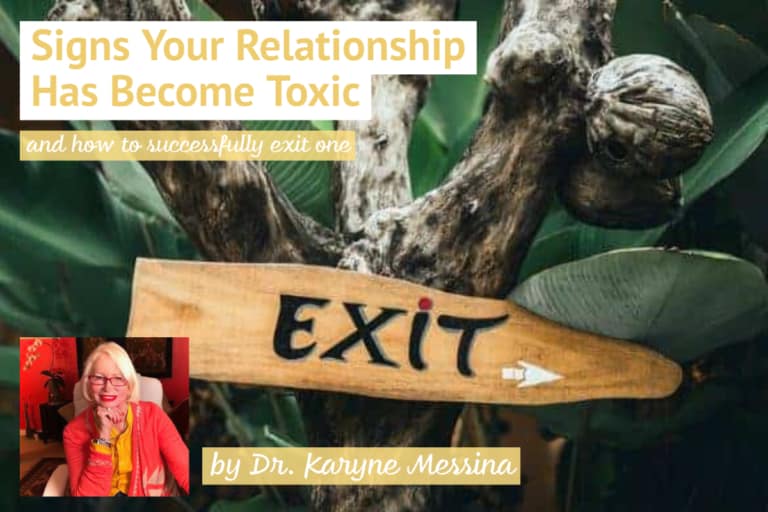I am working on a book dealing with how to successfully exit toxic relationships of all kinds, whether with a bad boss or a romantic partner. Below I’d like to tease some of the major takeaways, specifically as it relates to a romantic partner.
Many toxic relationships are built on a form of psychological abuse that I call blame shifting–known in the psychological community as projective identification–often with a narcissist calling the shots. Deep down, narcissists dislike themselves and shift those negative feelings onto their partners. After time, the victim believes the nasty things being said about him or her and can’t imagine life apart. This is the essence of blame shifting.
Narcissists often fly under the radar before being exposed for the manipulative blame shifters they are, so, with that in mind, here are three red flags that indicate a toxic relationship is brewing:
- Your partner’s personality has changed drastically. At the start of a relationship, a narcissist seems like the ideal partner: charming, witty, funny–they’re often the center of attention everywhere they go. But when things don’t go their way, or they don’t get exactly what they want, it’s as if the world is crashing down on them, except they’re not the one to blame–you are. And yet, in toxic relationships, the victim can’t seem to leave. Why? the narcissist has convinced his or her partner that to leave would be the ultimate failure. Drastic personality changes are often a key indicator that a relationship is dominated by a narcissist.
- Your “special bond” has turned sour. In a romantic relationship, narcissists will use their way with words to convince their partners that their bond is so special that nobody else could possibly ever understand it. The narcissist may say things like, “Nobody else has ever felt love like this” or, “I’ve never met anyone as perfect as you,” and they’ll say how much they love their romantic partner very early in a relationship. Partners involved with narcissists may describe the early days of their romance as a whirlwind: boxes of candy delivered daily, bouquets of flowers arriving for no reason, endless text messages filled with heart emojis, and declarations of undying love. These gestures, when genuine, are extraordinary displays of love, but in the hands of an expert manipulator like a narcissist, these are merely grooming mechanisms to set the target up for exploitation and manipulation. Eventually, after narcissists have convinced their partners how good they are together, narcissists will start with the restrictions: for example, a demand to stay away from other people because they require their partner’s undivided and total attention. If the partner tries to slow things down, the narcissist will complain and question whether their love is “real.”
- You are constantly cleaning up after your partner’s mistakes. Does your partner take on debt that he or she can’t repay–and do you step in to save the day? Have you ever had to cover up for your partner’s lies or bad behavior? As mentioned above, a classic sign of a toxic relationship is when one partner shifts blame to another. Helping your partner in a tough situation is one thing, but when one of you is constantly covering for the other’s missteps, that’s a clear indication that the power balance is skewed and you’re being used. Consider whether you’ve ever been asked to pay your partner’s overdue cell phone bill (or anything else). Imagine if you said no, how would your partner react? Does a massive screaming session ensue? If so, you’re probably being manipulated by a narcissist.
Photo Credit:
